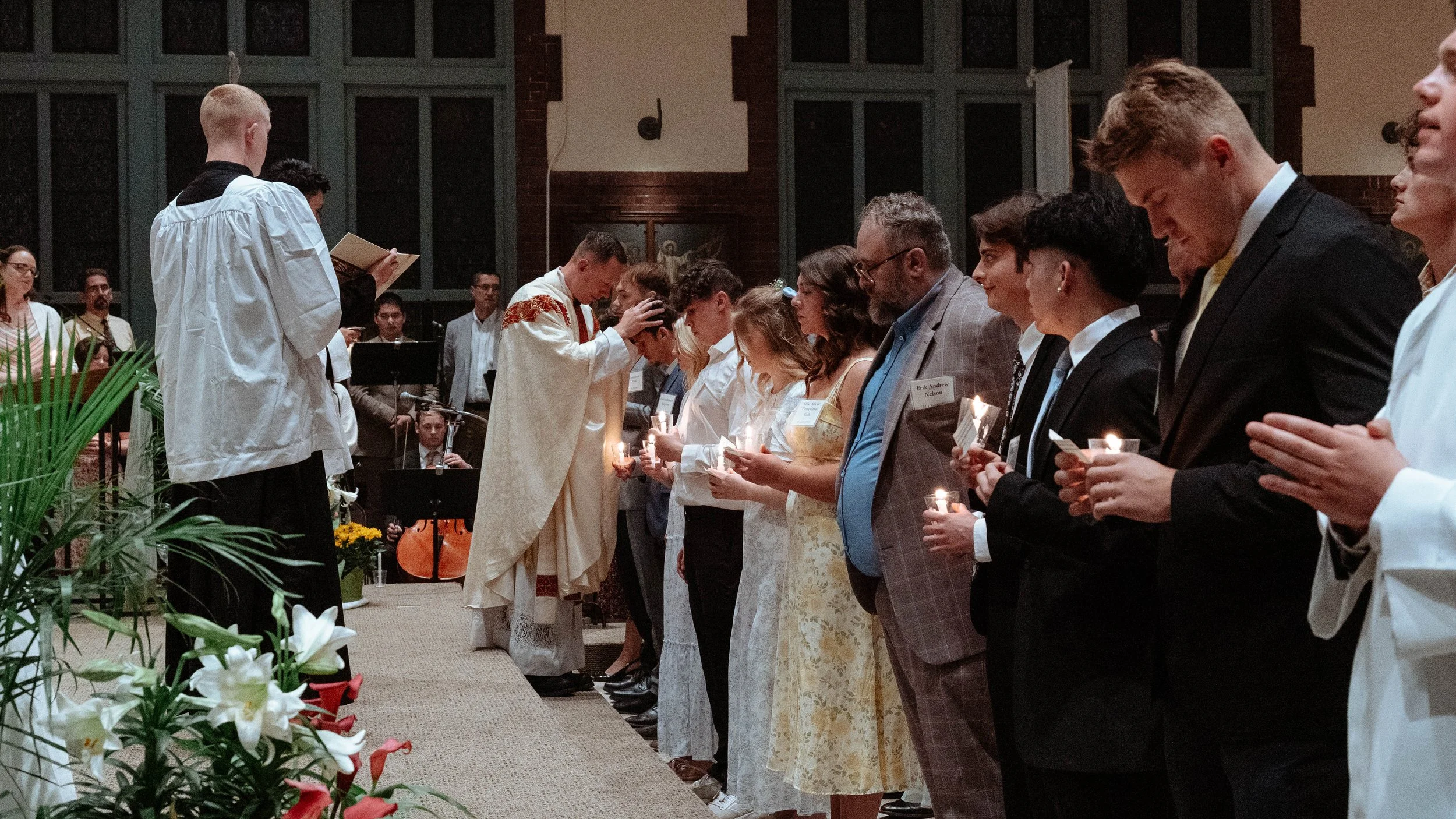
Sacraments
Join us for prayer at St. Lawrence
Mass Times
Semester Sunday Mass
8:00 a.m.
10:30 a.m.
7:30 p.m.
Mon - Fri Mass
12:15 p.m.
Saturday Mass
9:00 a.m.
Confession
Mon - Fri
After daily Mass
Saturday
No confessions
Building Hours
Monday - Friday:
9:00 a.m. - 5:00 p.m.
Saturday:
8:45 a.m. – 10:00 a.m.
Semester Sunday Mass Times:
8:00 a.m., 10:30 a.m. and 7:30 p.m. (Open for Mass only)
The building will be open at additional times to accommodate events & activities.
Adoration
Mon, Wed, Thurs, Fri
1:00 p.m. - 5:00 p.m.
Tues
1:00 p.m. - 4:00 p.m.
Funerals
Christian burial is one of the corporal works of mercy. We are called to love each other through these times.
The focus of the funeral is to pray for the person who has died, care for their family and friends, and help them encounter the abundant love of Christ in the church.
Organizing the funeral can be a very stressful time for the family. We have found that following a set of guidelines is helpful to minimize this. Please see our funeral guidelines below and contact the front office at (612) 331-7941 or info@gophercatholic.org for scheduling.






